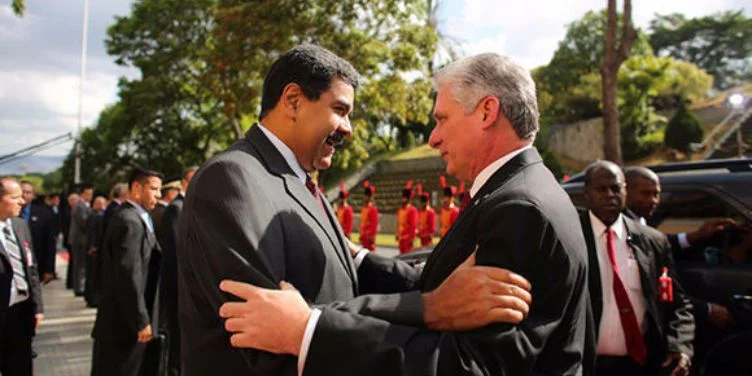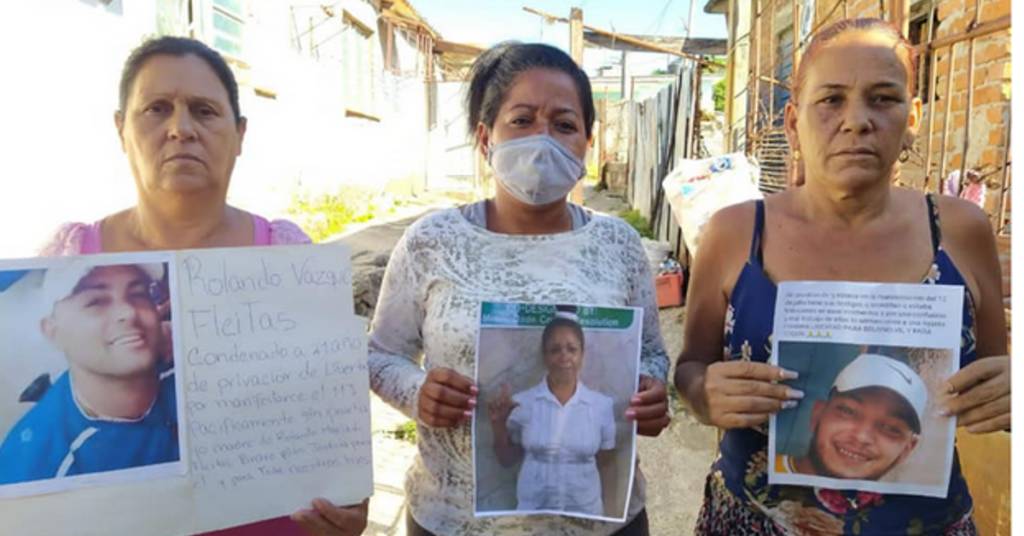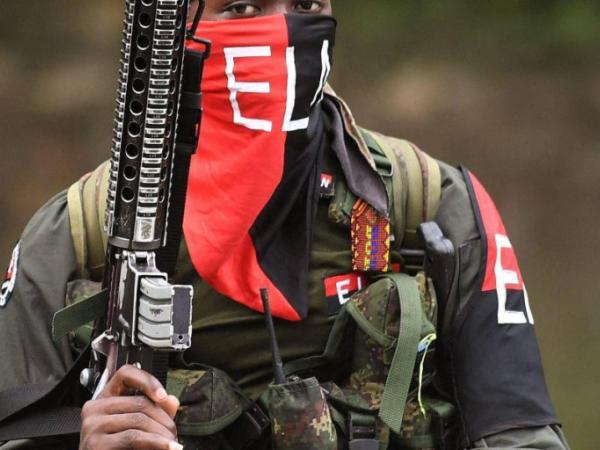BUENOS AIRES, Argentina. – Before the end of his term, the president of the United States, Joe Biden, removed Cuba from the list of state sponsors of terrorism and relaxed economic sanctions; and the Cuban dictatorship announced the “liberation” of 553 prisoners. A simple Google search for “Cuba + liberation + political prisoners” will return results of all the times in which something similar has happened, that is, a perverse State policy of using innocent human beings, who are imprisoned for exercising human rights that In Cuba they are considered crimes and are then used as bargaining chips for international concessions.
But leaving out the internal debate in the United States, the possibility of a political opening in Cuba is difficult without the involvement of Latin American and European countries in its claim. In this regard, we must begin by pointing out the inconsistency in denouncing fraud, repression and the illegitimate position of the presidency of Venezuela by Nicolás Maduro and say nothing regarding the single-party regime in Cuba, where article 21, paragraph 1, of the Universal Declaration of Human Rights is constitutionally violated.
And when something is said when comparing with Venezuela, such as the case of former Uruguayan president José Mujica, regarding the fact that in Cuba “they solved it and chose the single party”, it demonstrates a cynicism and discrimination towards the Cuban people that is unworthy of a person who was elected to various positions after participating in competitive elections and whose Popular Participation Movement (Tupamaros) is part of a Broad Front of more than 20 different political groups!
Gabriel Boric in Chile and Gustavo Petro in Colombia became president after social protests in their respective countries, but they have never raised their voices against the repression and massive imprisonments in Cuba following the massive protests of July 11 and 12, 2021. With their silence, those who exercised the human right to protest in Chile and Colombia are accomplices of those who repressed and imprisoned peaceful protesters in Cuba.
As he pointed out in his book Cuba, better not to talk about that the Uruguayan writer Carlos Liscano (1949-2023), who was a Tupamaro militant, political prisoner, exiled in Sweden and later an official in the governments of Tabaré Vázquez and José “Pepe” Mujica: “The Latin American democratic left will not be able to think clearly until clearly elucidate your position regarding the Cuban Revolution and expressly say that the Castro dictatorship not only violates human rights, but does not even recognize that exist.”
For its part, in the European Union it seems that they did not take note of the setbacks in human rights after the signing of the Political Dialogue and Cooperation Agreement in 2016 with the non-democratic government of Cuba, a faithful ally of the autocracies of Russia, Belarus and Obviously, Venezuela. A change in the EU’s policy towards Cuba would be desirable with the new head of European diplomacy, the Estonian Kaja Kallas, whose country suffered from communism. But for this it is necessary that those who manage the relationship with Cuba from the European External Action Service do not continue to be Spanish community diplomats nostalgic for the “Cuban Revolution” and instead appoint officials from countries with a tradition of diplomacy committed to human rights. humans in Cuba.
In Latin America and Europe they did not even take note of the detailed conclusions of the Independent International Fact-Finding Mission on the Bolivarian Republic of Venezuela, on “Crimes against humanity committed through the State intelligence services: structures and people involved in the implementation of a plan to repress opposition to the government” on December 20, 2022.
Section 4 of this report from the UN Human Rights Council includes the “Memorandum of Understanding with Cuba”, which says the following:
-Former DGICM officials told the Mission that the Cubans trained, advised and participated in intelligence and counterintelligence activities with the DGCIM. This collaboration dates back at least to a confidential Memorandum of Understanding (hereinafter “MOU”) signed in 2008 by the Governments of Cuba and Venezuela, reviewed by the Mission, which entrusted the Cuban Ministry of Defense with the supervision of the restructuring of services. of Venezuelan military intelligence, including through the “creation of new bodies.”
-The Memorandum of Understanding also entrusted Cuban officials with training DGCIM officials, including the highest-ranking ones, and playing an active role in Venezuelan counterintelligence efforts. The objective of the collaboration is defined in part as “uncovering and confronting subversive and intelligence efforts on behalf of the enemy, as well as criminal activity.” A separate agreement, which was signed at the same time, established a joint Cuban-Venezuelan committee composed of Cuban military experts who would oversee inspections and training of the FANB as a whole. According to confidential documents reviewed by the Mission, this collaboration continued without expiration dates.
-Former DGCIM employees told the Mission that, after the signing of the Memorandum of Understanding, Cuban officers began to conduct training at the Boleíta military academy and accompany DGCIM officers in the regional offices and in Boleíta. The Cubans formulated the instructions as suggestions and not as orders, but if a DGCIM agent did not follow them, he or she was marked as a “person of operational interest” (suspected of counterrevolution). Former DGCIM employees and a high-level FANB officer told the Mission that Cuban officials played a leading role in the development of interrogation techniques and surveillance methods at the DGCIM, as well as the structures and facilities. objectives of the Directorates, including the Communications and Operations Directorates. It was common for DGCIM agents to travel to Cuba to receive training.
In this regard, in a recent interview with Claudio Fantini in the Cuarto de Hora cycle, hosted by journalist Jorge Elías on CADALTV, the expert in international affairs explained in a very didactic way why Cuban intelligence is one of the keys to the subsistence of the Venezuelan regime.
Therefore, condemning the Venezuelan dictatorship and ignoring the Cuban one is like seeing the tree but not the forest. Furthermore, according to consulted experts, when a State that did not sign the Treaty of Rome, such as Cuba, commits human rights violations in a State that did sign it, such as Venezuela, then it can be denounced in The Hague. Will the time come one day for the old Cuban military dictatorship to submit to international justice?
Gabriel C. Salvia is general director of CADAL (www.cadal.org) and author of the book Memory, human rights and international democratic solidarity.















